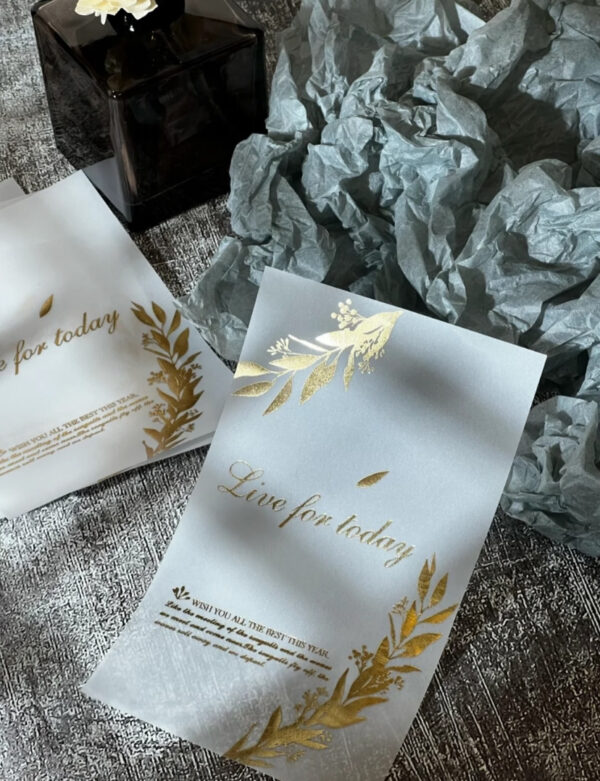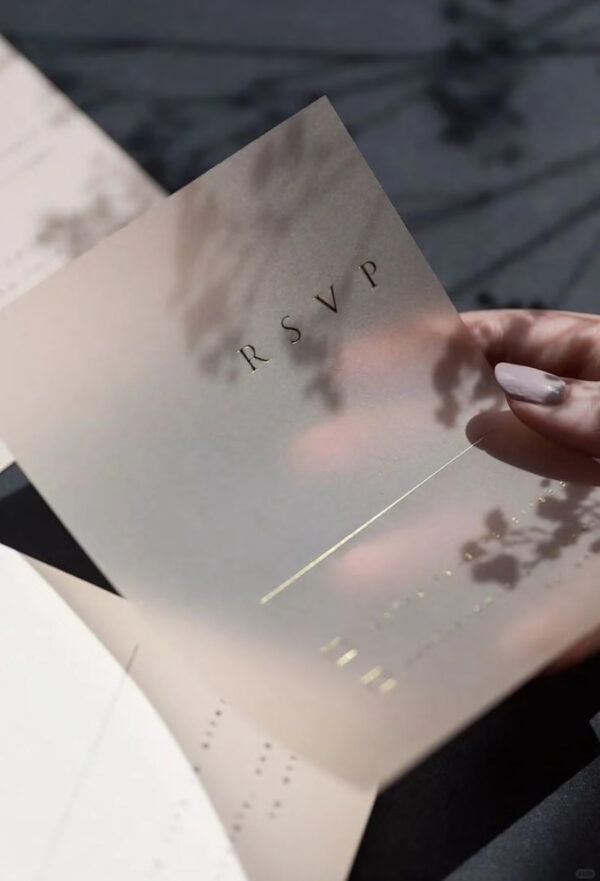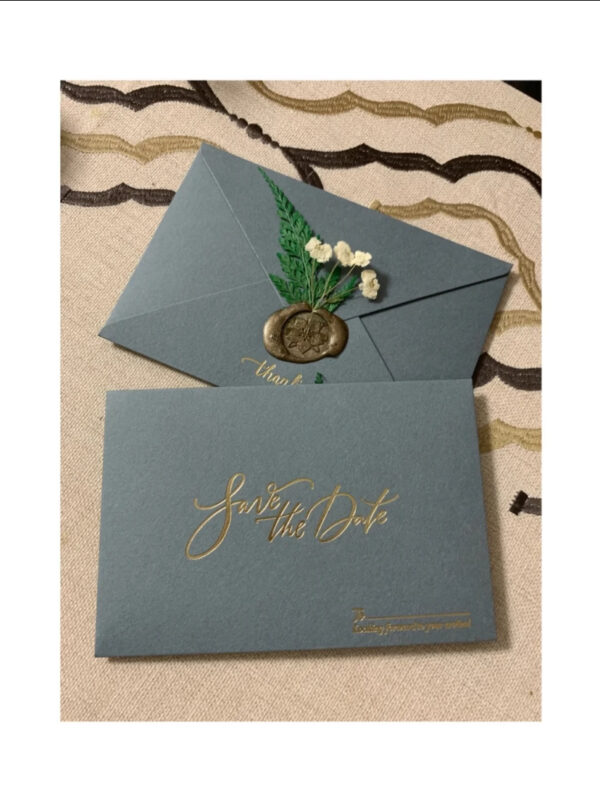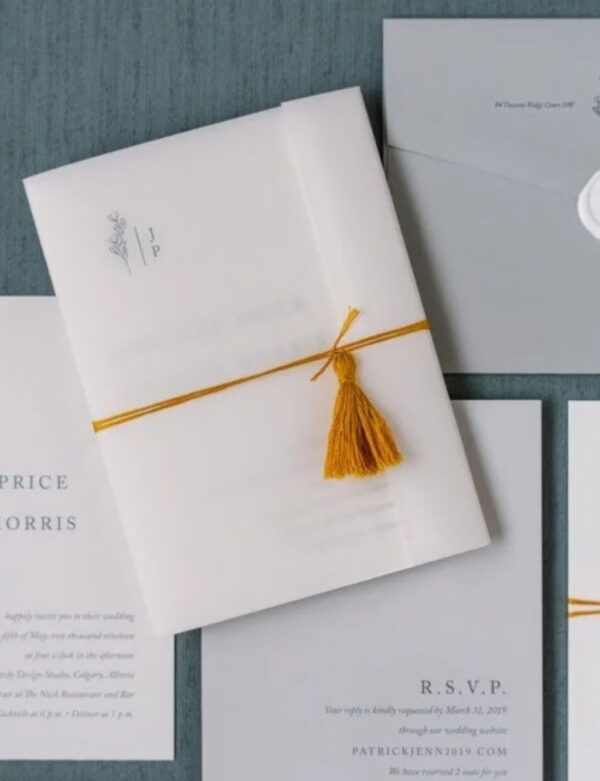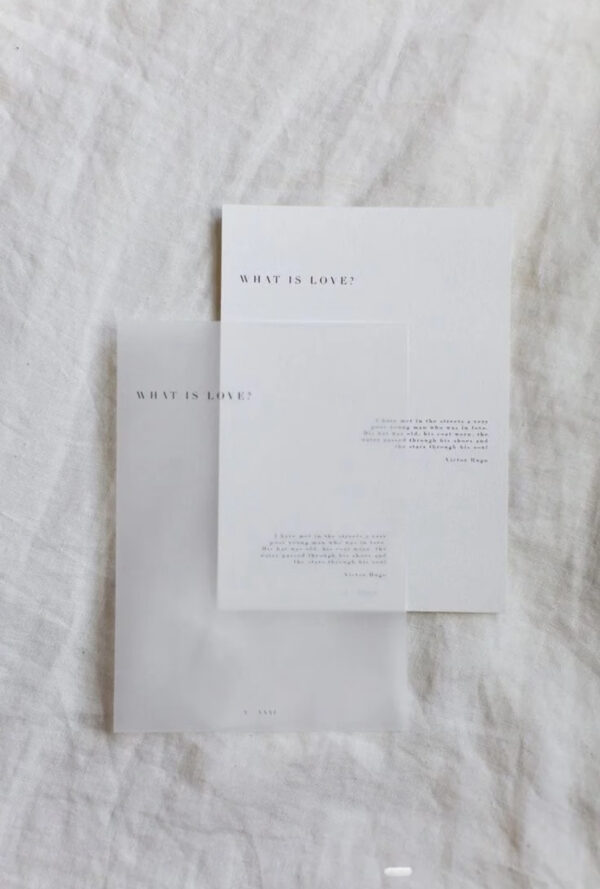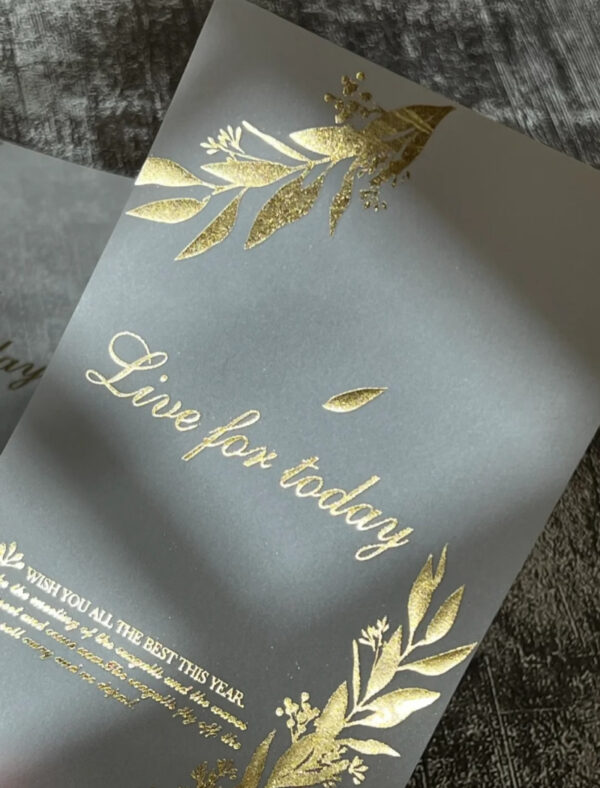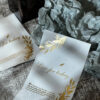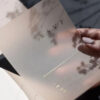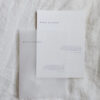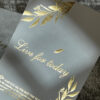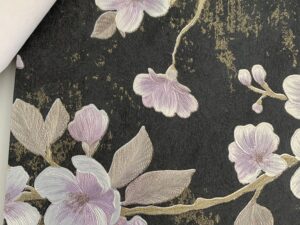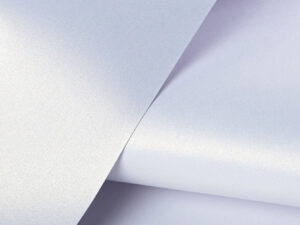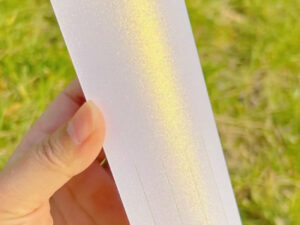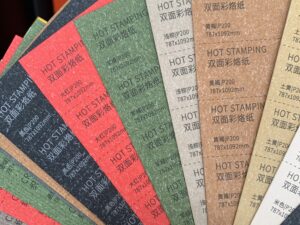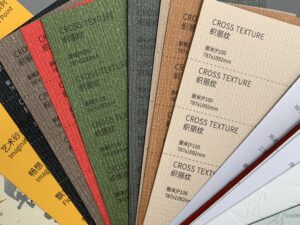Parchment Paper (for Printing & Finishing)
Parchment Paper is a high-grade, translucent paper known for its exceptional durability, smooth surface, and resistance to heat and moisture. Unlike standard tracing paper, it is engineered specifically for advanced graphic arts applications, including high-quality printing and specialty finishing techniques such as hot foil stamping.
Its unique properties are achieved through a rigorous manufacturing process where high-quality cellulose fibers are treated with sulfuric acid (giving it the traditional name “sulfate paper” in some regions) or other chemicals, resulting in a dense, non-porous, and dimensionally stable sheet. This process creates a robust material that withstands the heat and pressure of foil stamping dies without burning or distorting, making it a premium choice for luxury projects.
Key Characteristics for Printing & Finishing:
Superior Heat Resistance: Its most critical feature for foil stamping. It can withstand the high temperatures of hot stamping dies without scorching, yellowing, or losing its structural integrity.
High Dimensional Stability: Remains flat and stable under varying humidity and during the heat stamping process, ensuring precise registration for printing and finishing.
Smooth, Non-Porous Surface: Provides an excellent, sharp surface for both ink adhesion and for allowing hot foil to release cleanly from its carrier film and bond evenly.
Translucent Elegance: Offers a distinctive, sophisticated semi-transparent appearance that adds depth and a tactile, premium feel to any design.
Excellent Printability: Compatible with various printing methods, including offset, letterpress, and silk-screen, producing sharp and vibrant results.
Primary Applications:
Premium Packaging: Luxury product boxes for cosmetics, electronics, and spirits.
High-End Stationery: Wedding invitations, business cards, diplomas, and certificates.
Book Covers & Dust Jackets: Especially for special editions.
Tags & Labels: For high-end apparel and goods.
Overlays & Design Proofs: In professional design workflows.
Translucent paper
See-through paper
Archival paper
Greaseproof paper
Bleached paper
Drafting paper

